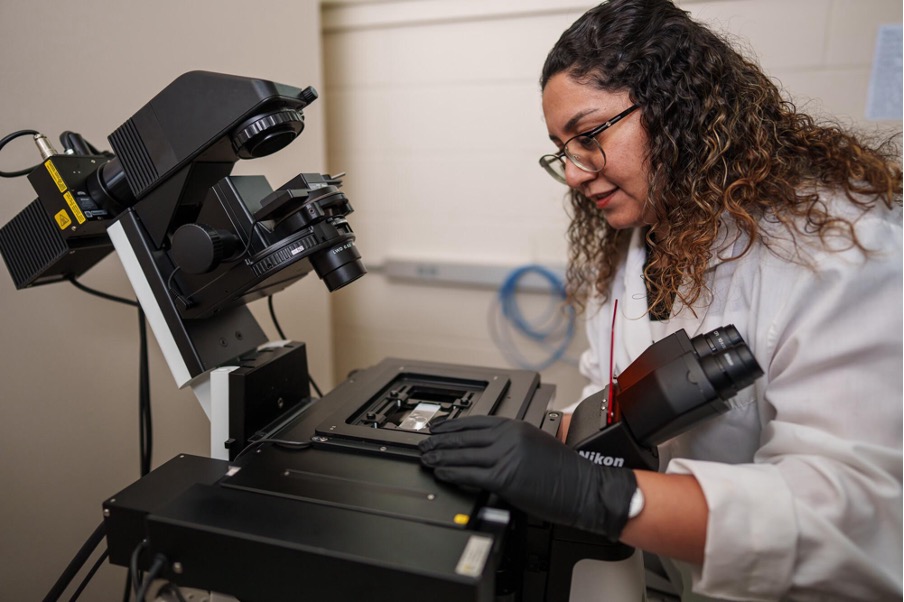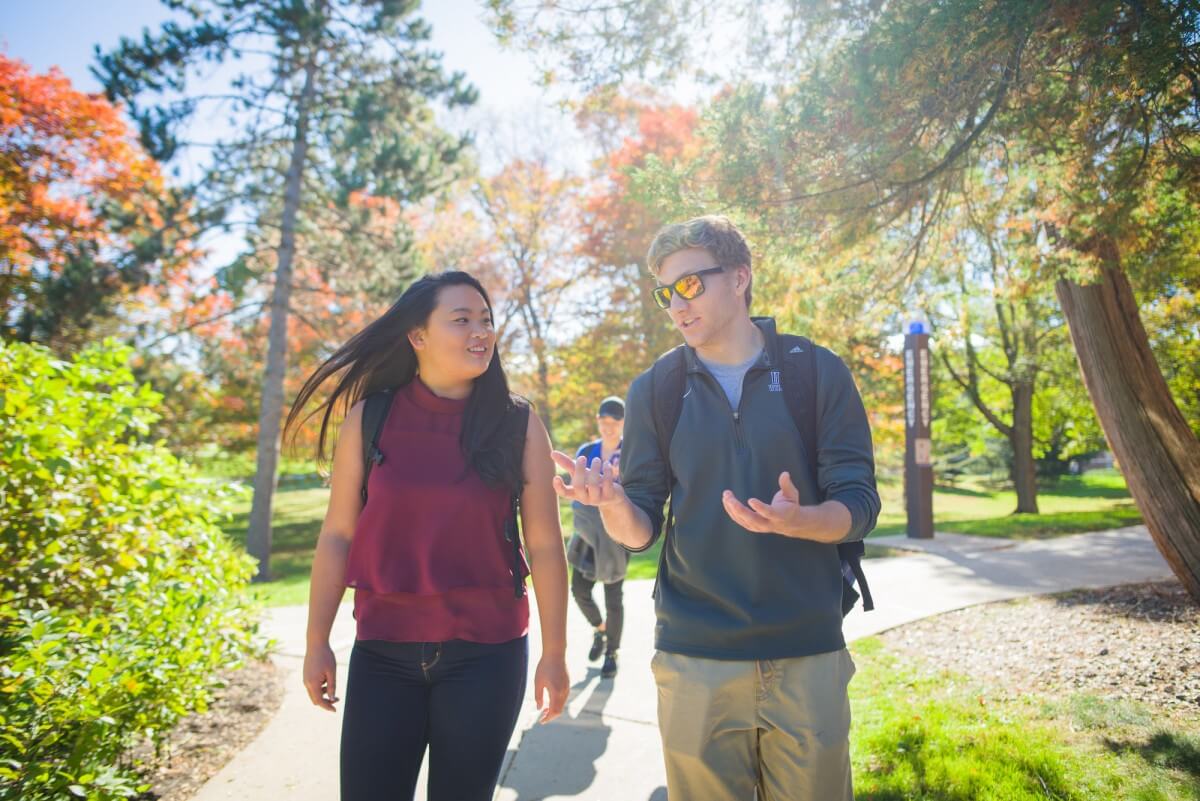Sabah Sabir always wanted to study biomedical sciences broadly rather than focusing on just one area like chemistry or biology. At the same time, she sought to work in research as an undergraduate. It was important that any university she went to offered both.
“That’s why I chose the University of New Hampshire (UNH),” she says. “At UNH, I got to study all fields of science simultaneously, which allowed me to be a better-rounded student and gain exposure to more areas.”
After she received her undergraduate degree, Sabir stayed at UNH to pursue her MS in Molecular and Cellular Biotechnology. It was the best option for her because she could build upon the research projects she was already in the midst of at UNH. Deeper expertise and meaningful progress followed.
“From the beginning, I was drawn to the programe’s flexibility and its focus on practical application,” she says. “I could classes that aligned with my specific interests and career goals, creating a tailored educational experience.”
Located in the heart of New England, UNH is New Hampshire’s flagship public university and a research powerhouse, with its labs and scientists known as some of the nation’s best. The Carnegie Classification of Institutions of Higher Education has designated UNH as one of the top research institutions in the country. For over 150 years, UNH has stood out for its teaching, research, and work experiences that bring together students, faculty, as well as private and public partners.
The UNH College of Life Sciences and Agriculture (COLSA) is one of five colleges at the university’s safe, picturesque Durham, NH campus. COLSA is a community of scholars and scientists driven by a common goal: to improve the world. Near Boston, Massachusetts, and the Massachusetts technology and life sciences corridors, this college is at the ideal location to do just that.

The Carnegie Classification has recognised UNH as one of the top research institutions in the country. Source: University of New Hampshire
At COLSA, the focus is on making a difference. Whether it’s diseases, strained ecosystems, or food insecurity, the faculty and students are focused on tackling the planet’s biggest challenges. Through leading-edge research and hands-on work in the labs and the fields, the college welcomes all to join its ranks and gives them a strong start to realise this noble purpose.
Programmes offered here include the MS in Bioinformatics and the MS in Molecular and Cellular Biotechnology. These stand out for the personal, high-touch, and boutique experiences they offer. Students have the backing of an entire community of scholars and are matched with a faculty member who shares their interests.
“This approach allowed me to gain practical skills and receive immediate feedback from instructors and peers,” Sabir says. “The interactive environment fostered deeper understanding and collaboration, making me more well-rounded and confident in applying what I learned.”
Another student Disha Hegde, who is pursuing a Bachelor of Science in Genetics and planning to enroll in the accelerated Bioinformatics MS, describes her time here as “incredibly fulfilling.”
“Academically, I have been challenged and inspired by the rigorous curriculum and the opportunity to engage in hands-on lab work in classes like organic chemistry,” she says. “The faculty members are very knowledgeable and are always willing to help when needed.”

UNH faculty members work closely with top biotech companies. Source: University of New Hampshire
UNH’s state-of-the-art facilities further enhance the student experience. For biotechnology graduate students, the Hubbard Genome Center and the advanced University Instrumentation Center provide access to a wide range of equipment. Students like Sabir can perform detailed phenotyping and cellular analyses using electron microscopes and flow cytometers. For her project on red blood cell stages and characteristics, the centre’s support was instrumental in executing complex experiments, ensuring accuracy, and obtaining high-quality data.
International students at COLSA receive the same support and can access the same facilities as their local peers. At the university level, however, they get extra, specialised guidance. The Office of International Students and Scholars offers immigration advising, support services, and programmes that bring together the international, campus, and local communities.
Upon graduation, eligible international students can apply for Optional Practical Training (OPT), which allows them to work in the US in their field of study for up to one year. Graduates of STEM-designated programmes can apply for an additional 24 months of employment authorisation through the OPT STEM Extension. More than 75% of UNH’s international graduate students apply for OPT, highlighting the university’s track record of successfully preparing students for careers of impact.
Interested? Learn more about University of New Hampshire.
Follow University of New Hampshire on Facebook, X, Instagram, YouTube, and LinkedIn












